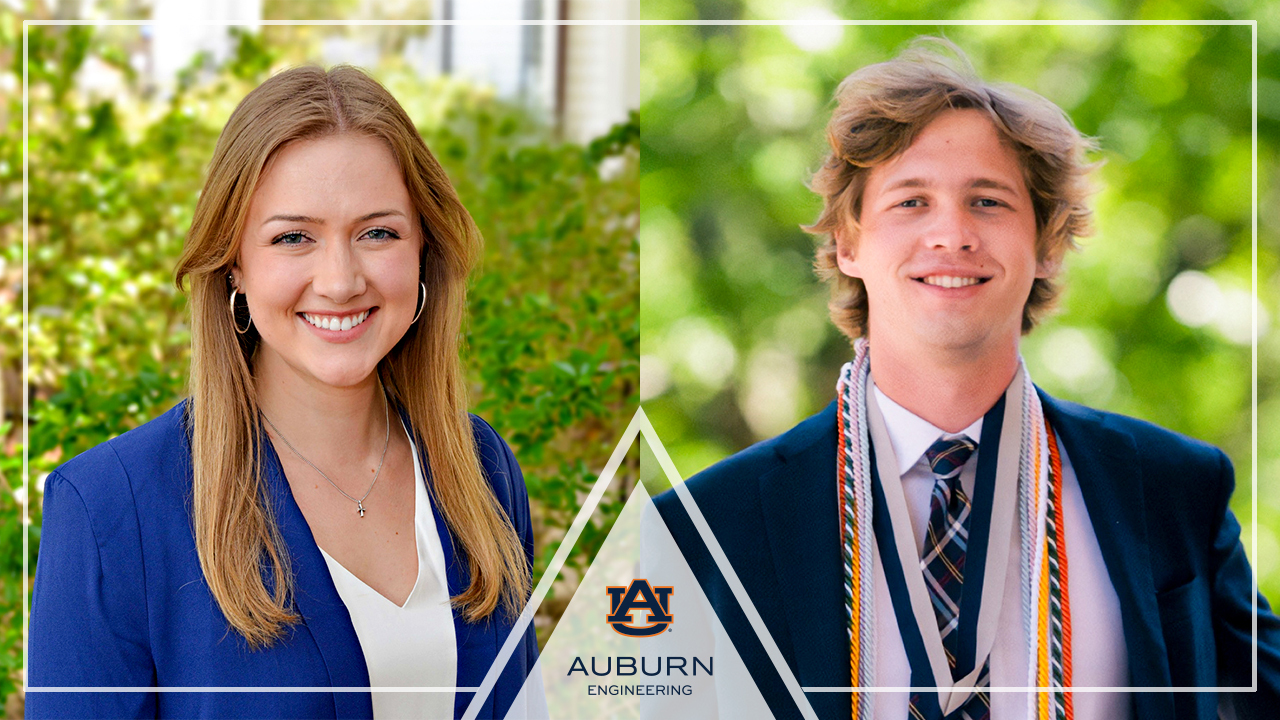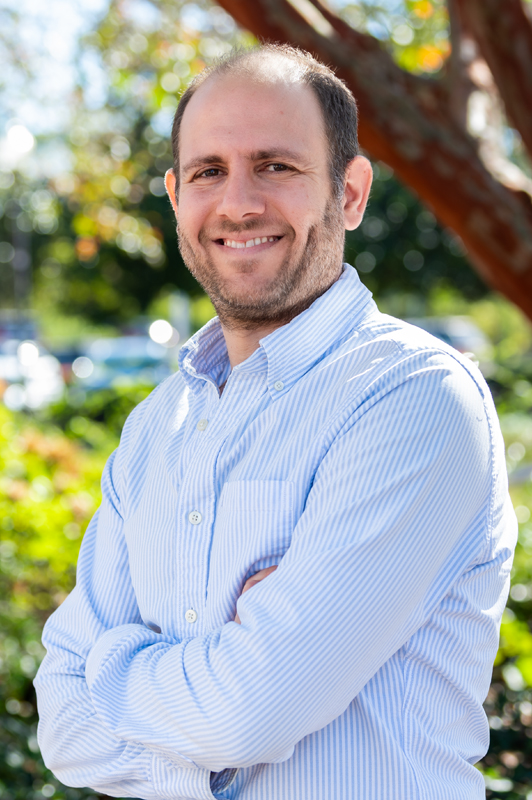Auburn University's Phi Kappa Phi Honor Society chapter awards have chemical engineering flavor
Published: Nov 6, 2023 7:20 AM
By Joe McAdory
Anya McDaniel wants to leverage her Auburn Engineering education to develop specialized solutions for problems that arise in the medical world. Collins Keith is using his Auburn Engineering education to tangibly improve the lives of medical patients.
Both want to make a difference. Both are members of the chemical engineering family. Both were recently awarded by Auburn University’s Phi Kappa Phi Honor Society chapter.
McDaniel, a senior working toward a degree in chemical engineering with a specialization in biomedical, was presented the Phi Kappa Phi Outstanding Undergraduate Student Award. Keith, who graduated in May with a degree in chemical engineering with a specialization in biomedical, was given the Phi Kappa Phi Outstanding Senior Scholar Award. He is currently a visiting malaria researcher at the University of Cambridge (U.K.) Institute for Medical Research.
Established at Auburn in 1914, Phi Kappa Phi is the oldest, largest, and most selective academic honor society dedicated to the recognition and promotion of academic excellence in all fields of higher education.
“The engineering curriculum at Auburn has taught me how to approach problem-solving in a unique and innovative manner compared to a standard approach,” said McDaniel, who plans to attend medical school, spent this past summer as a scientific researcher at the University of Alabama-Birmingham. There, she studied spectroscopy, DNA electrophoresis, polymerase chain reaction, cell culture, and more.
“I’ve not only developed the ability to identify problems, but also acquired the technical skills necessary to design solutions,” McDaniel said. “Additionally, Auburn Engineering’s curriculum places significant emphasis on group work, which has made me comfortable collaborating with various people, even preferring it in many cases.”
Keith said his Auburn experience allowed him to “think critically and problem-solve.”
“Being a medical scientist – my eventual goal – we need to memorize facts and information,” he said. “This provides a basis for understanding symptoms, making diagnoses, and conducting experiments. The ability to see the bigger picture, transition between environments and connect environments and different disciplines relies on critical thinking and problem-solving. My Auburn Engineering education gave me the tools to work with patients day-to-day, help them with their conditions, as well as research long-term, wide-ranging treatments for ailments affecting larger populations.”
McDaniel and Keith have even more in common – assistant professor Panagiotis Mistriotis’ laboratory – where research lies at the interface of engineering, biophysics, cell and molecular biology and biochemistry with applications in aging, vascular diseases, and cancer metastasis.
“I am truly fortunate to have mentored both of them in my lab, where they seamlessly integrated their engineering skills to tackle fundamental biomedical challenges,” Mistriotis said. “Their impressive accomplishments underscore the critical significance of biomedical engineering research in higher education. I have unwavering confidence in their potential to profoundly improve the lives of numerous patients in the future.”
Media Contact: , jem0040@auburn.edu, 334.844.3447
Senior Anya McDaniel, left, is working toward a chemical engineering degree with specialization in biomedical engineering, while Collins Keith graduated in May with a chemical engineering degree with specialization in biomedical engineering.


